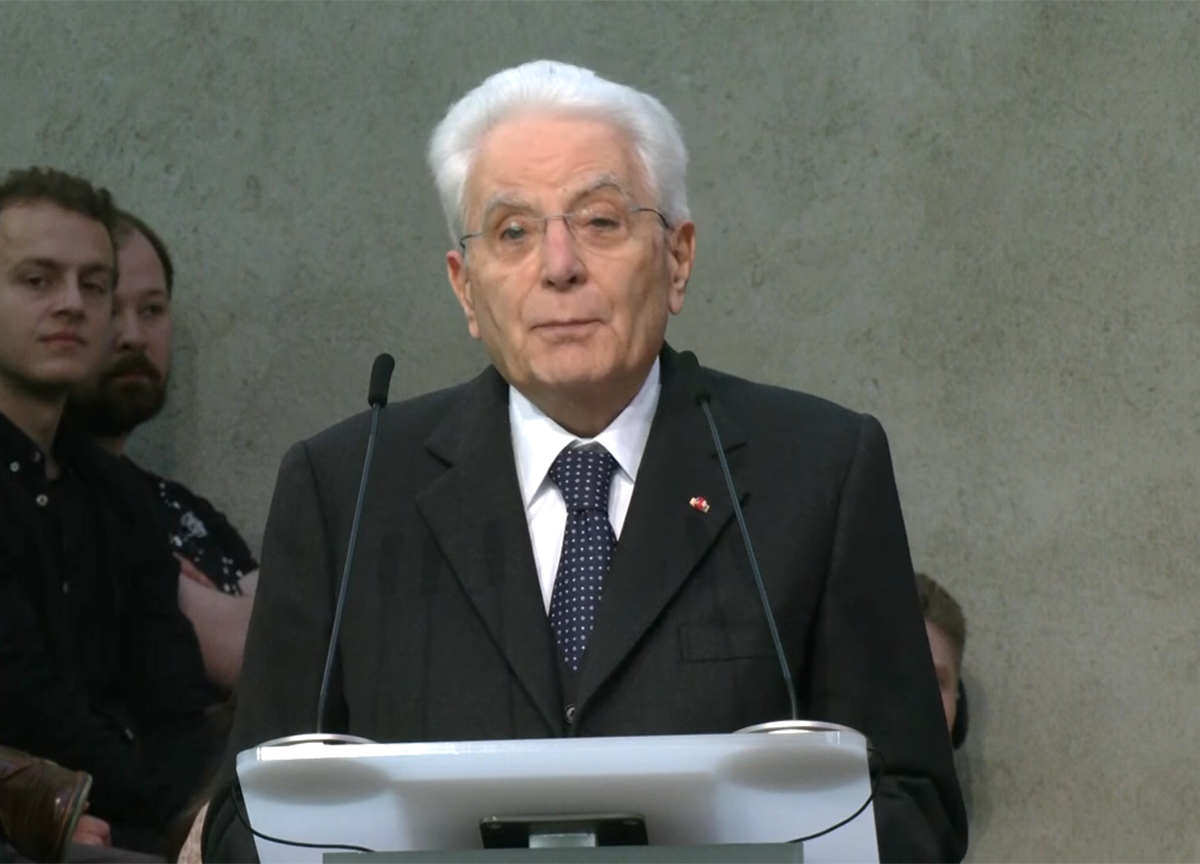Day against homophobia, the condemnation of the head of state
“Homophobia, biphobia and transphobia constitute an unbearable social scourge that is still present and the cause of unacceptable discrimination and violence, in some areas of the world even legitimized by rules that trample on the rights of the person”. Thus begins the President of the Republic, Sergio Mattarellaon the occasion of international day against homolesbobitransphobia. “Since 2007, when International Day was established from the European Parliament – underlines the head of state – the sensitivity of the collective conscience towards these issues has increased. The action to contrast the numerous episodes of violence that the news continues to record cannot cease”.
Mattarella on LGBTQIA+ discrimination: “It is the duty of the institutions to develop prevention strategies to respect diversity and inclusion”
The head of state continues in his message by framing the solutions: “Against the manifestations of intolerance, dictated by the misrecognition of the value of each person – adds the head of state – a unanimous condemnation response must come. It is the task of the institutions to develop effective prevention strategies that educate to respect for diversity and the other, to inclusion”.
Continue to perpetrate discriminatory behaviors towards the queer community: “tramples on the Charter of Fundamental Rights of European Union and our Constitution which precisely in article 3 recognizes equal social dignity, without distinction of sex, of all citizens, guaranteeing the full development of the human person” concludes the president Mattarella.
Italy slips down in the European ranking on the protection of LGBTQIA+ rights
L’Italy retreats of a position Italy within the Rainbow Map drawn by Ilga, the international association supporting lesbian, gay, bisexual, transgender and intersex rights. With a score of 24.76%, the Bel Paese ranks in 34th position among the European states and 22nd among those of the European Union (last among the founding countries). The most progressive country in this sense has been – for eight years – Malta, followed by Belgium, Denmark and Spain, which are growing enormously with a leap of no less than six positions. The ranking is drawn up on the basis of the laws and policies of 49 countries using 74 criteria, divided into seven thematic categories: equality and non-discrimination; family; hate crime and hate speech; legal recognition of gender; intersex bodily integrity; civil society space; and asylum applications.
Omolesbobitransphobia, the emergency is growing: data updated to 2022
In 2022, the toll-free number 800713713, managed by the Gay Help Line received 21,000 hits. The data were presented in the Campidoglio this morning in the presence of Mattia Peradotto (Presidency of the Council of Ministers – Director of Unar – National Office Against Racial Discrimination), Oscad (Observatory against discrimination of the Ministry of the Interior), Monica Lucarelli (Councillor for Equal Opportunities ‘), Michela Cicculli (President of the Equal Opportunities Commission), Marilena Grassadonia (Lgbt+ Rights Office Coordinator) by Alessandra Rossi (Gay Help Line Coordinator) and Marina Marini (Lgbt+ Refuge Manager).
2023 is the year in which Ilga Europe (international association for LGBT rights present at the UN), ranks Italy in 34th place out of 49 in the ranking of European countries for policies to protect human rights and people’s equality LGBT+ (lesbian, gay, bisexual and trans). Detection confirmed by the alarming data of the Gay Help Line 800 713 713 (gayhelpline.it) relating to the year 2022.
Indeed, it emerges that homolesbobistransphobia does not stop and the negative social impact increases substantially of violence and discrimination against LGBT+ people. The most affected are trans people, whose reports increase to 14.7% of contacts, especially young people and adolescents. Of the total managed, 41.6% suffer homotransphobic violence in the family following coming out: 31.6% of the victims are young people between 11 and 26 years of age. For 15% it is LGBT+ minors who are victims of family abuse that continues over time and is characterized by an escalation of violence: confinement at home, even to the detriment of school attendance, attempts at conversion, control that leads to verbal violence and physics.
Discriminations against the queer community: what does it entail?
In 5.7% of cases the homotransphobic bullying has encouraged school dropout and only one in 5 transgender students applied to the school “alias career”, which provides for the authorization to use pronouns and an alias name congruent with the student’s gender in school documents. For 17% of young people who have contacted the Gay Help Line tell of having suffered the loss of financial support from family members: most of these have been abandoned and this has compromised their study and training paths.
Out of about 400 cases of young LGBT+ people thrown out of their homes only 10% manage to find hospitality in protected family homes. In 12.6% of cases homotransphobic violence and discrimination were the cause of social marginalization and housing problems even in the adult age groups (up to 70 years): the responses of the reception system to the social consequences of homotransphobia are currently insufficient , especially for trans people.
Of the 11.4% of reports of employment discrimination, 3 out of 4 cases concern trans people for whom the barrier to accessing the world of work is very high. 12% of the reports concern aggression, harassment and homotransphobic hateful acts in public places or in the workplace, triggered by the visibility of the victims. Only 38% of victims of assault went to the emergency room after suffering injuries and in most cases they did not declare having suffered violence because they were LGBT+.
A datum that is constant over time is the difficulty of victims to report: the phenomenon of underreporting it has a worrying effect on the recognition of the extent of discrimination and violence. In this period of strong social pressure, legislative measures to support the LGBTQIA+ community are even more urgent
Subscribe to the newsletter
